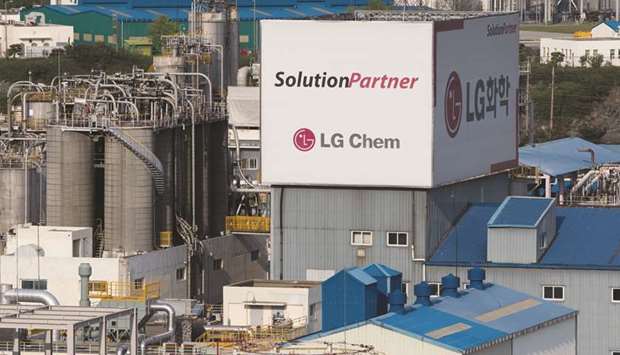Backed by the European Commission, the government in Berlin is coordinating with some of Germany’s biggest companies in and outside the car industry, Deputy Economy and Energy Minister Matthias Machnig said in an interview. The plan is linked to recent proposals that envisage European Union aid to help set up an “Airbus” for battery cell production, a reference to the pan-European aircraft maker.
German machine makers, car-parts suppliers and chemical companies are prepared to create a battery-cell “consortium,” said Machnig, who is leading the government’s initiative.
“We haven’t much time — corporate decisions are needed fast if we want to be in position when electric car sales really take off,” Machnig said. Potential participants must decide whether to proceed in 2018, he said, declining to name companies that may join the venture.
“We don’t need merely 1-gigabyte-hour factories but 4-gigabyte-hour factories at various locations in Europe, be it Italy, Germany, France or Poland,” he said. The lure to kick-start production in Europe of electric-car battery cells is a continental market that may be worth €150bn ($174bn) by the middle of the next decade as sales of the vehicles gain traction, he added.
Lithium-ion electric-car batteries, which tap chemical reactions to generate power and can weigh as much as 200kg(440 pounds), may comprise about 40% of vehicles’ total cost, while cells can make up some 60% of the batteries’ cost.
Europe has a lot of catching up to do.
Led by South Korea’s LG Chem Ltd, China’s BYD Co and Japan’s Panasonic Corp, Asian producers dominate the cell market. LG Chem has built up production capacity of 16GW-h by this year, with BYD at 16GW-h and Panasonic at 13GW-h, according to Bloomberg New Energy Finance data.
Bidding to tap future demand in the European electric-car market, LG Chem announced plans last month to build a $340mn battery assembly factory, the EU’s largest plant, in Wroclaw, Poland. Tesla Inc’s 35GW-h “gigafactory” in Nevada assembles battery packs from cells made by Panasonic.
A proviso for setting up European production is a commitment from carmakers to buy cells from the consortium, while the biggest commodity and chemical companies need to generate adequate savings, such as on coatings, to compete with Asia, said Machnig.
BASF AG, the world’s biggest chemical supplier to the automotive industry, said in a note to Bloomberg that it backs enhancing the “value chain in Europe” of electric-car batteries, based on motives of sustaining “leadership in profitability and technology.” The German company wasn’t more specific.
Slow progress in improving battery technology and competitiveness is holding up electric car sales, said Elmar Degenhart, chief executive officer of car-parts maker Continental AG, in a speech on Thursday in Berlin. “Right now, adequate battery-cell technology is lacking,among other things,” Degenhart said. He didn’t comment on the plans to create a European battery cell infrastructure.
Two of Germany’s biggest companies, Volkswagen and Robert Bosch, are weighing entry into the battery-cell market, raising questions over how their strategy might fit with the consortium plans. Bosch said it will decide early next year, while VW is planning a large-battery unit but hasn’t said whether it will make cells.
Two carmakers, one French and one German, have no interest in the consortium proposal, as they view battery cells as commodities that they can buy cheaply from Asia, said Machnig. Another German carmaker views the plan positively, he said, without elaborating.
LG Chem signage is displayed at the company’s plant at the Yeosu Industrial Complex in Yeosu, South Korea. Bidding to tap future demand in the European electric-car market, LG Chem has announced plans to build a $340mn battery assembly factory, the EU’s largest plant, in Wroclaw, Poland.

